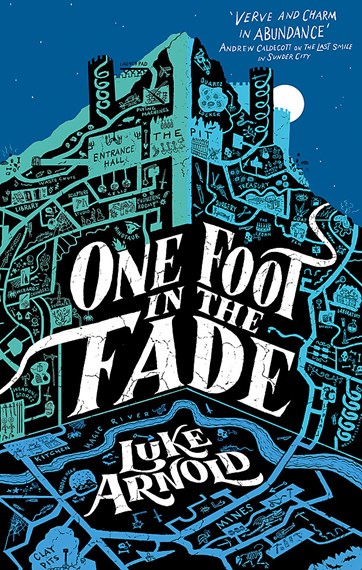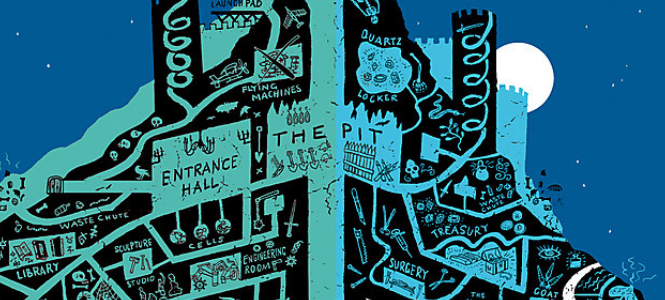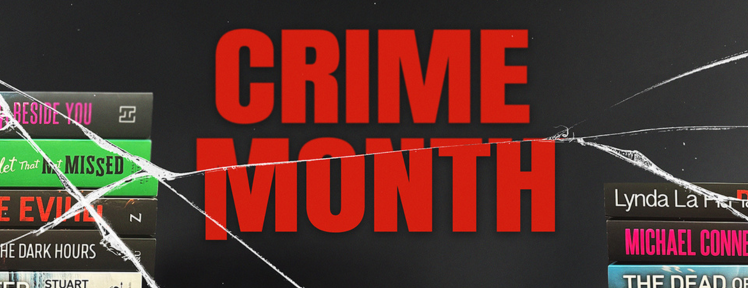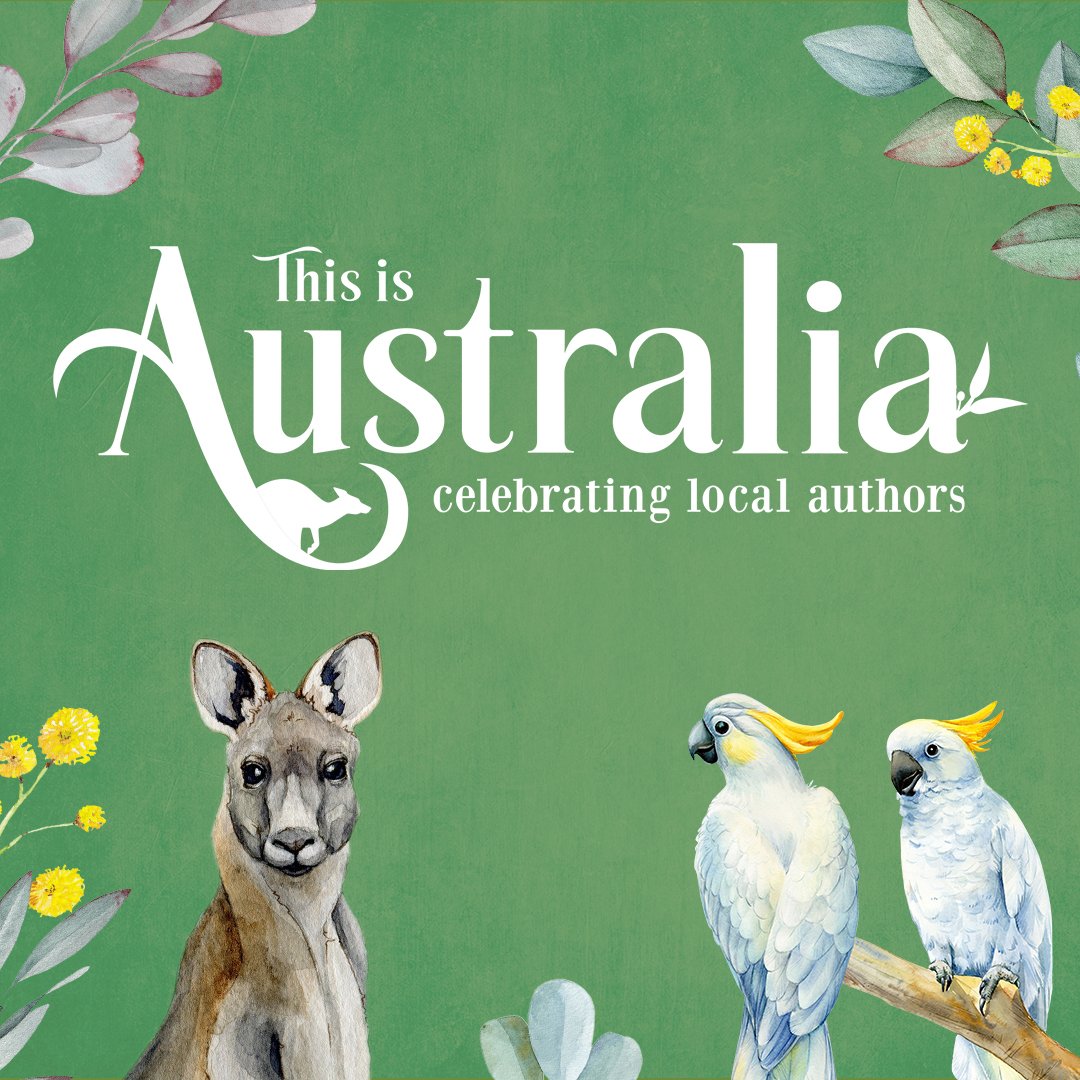Luke Arnold was born in Australia and has spent the last decade acting his way around the world, playing iconic roles such as Long John Silver in the Emmy-winning Black Sails and his award-winning turn as Michael Hutchence in the INXS mini-series Never Tear Us Apart. When he isn’t performing, Luke is a screenwriter, director, novelist and ambassador for Save the Children Australia. He is also the author of the Fetch Phillips fantasy series.
Today, to celebrate the release of the latest Fetch Phillips book, One Foot in the Fade, Luke Arnold is on the blog to take on our Ten Terrifying Questions! Read on …
1. To begin with, why don’t you tell us a little bit about yourself – where were you born? Raised? Schooled?
I was born in Adelaide and spent my primary school years in the Adelaide Hills, which were really pretty ideal for that time of my life. Our house was at the bottom of a cul-de-sac street where every home had a kid close to my age, a dog, a place to build a cubby and, over time, either a Sega or Nintendo system. I moved to Sydney for High School until year 11, then I finished up on the Sunshine Coast, before heading over to WAAPA in Perth to study acting. All the moving around likely prepared me for the unpredictable life that would come from being in the arts.
2. What did you want to be when you were twelve, eighteen and thirty? And why?
At twelve, I wanted to write and draw comics. I loved writing stories and did art classes after school, so creating comic books seemed like the perfect combination of my passions.
At eighteen, I was deciding whether to train to be a writer or an actor. I was working my first job in the film industry, behind the scenes, and had applied to writing courses, film school and WAAPA. The lead actor in the film I was working on told me that writers and directors generally have happier lives than actors, and my principal told me that I was a great writer but a terrible actor so I should definitely go do writing or directing. Despite all advice to the contrary, I ended up going to drama school and I don’t regret it at all. We didn’t have a lot of money growing up so I didn’t leave the country until acting started taking me around the world.
At thirty, Never Tear Us Apart, where I played Michael Hutchence, had just aired and I was working on a brilliant pirate show called Black Sails. I loved performing both of those roles, it left me feeling creatively fulfilled as an actor for the first time, so I felt I was ready to get back into developing my own work.
3. What strongly held belief did you have at eighteen that you don’t have now?
For better or worse, I’ve never been one to firmly believe in much of anything. I’ve always been aware of my own naivete and try to stay open to having my world turned on its head. My parents instilled that at an early age. Rather than enforce a particular view of the world, they promoted openness, malleability and curiosity. There are some downsides to this though. A strong world view and set of beliefs can help propel you through the world, but I don’t mind the fact that I can look at most accepted ideas, rules, or ways of doing things and think “yeah, but what if it’s all nonsense?”
4. What are three works of art – this could be a book, painting, piece of music, film, etc – that influenced your development as a writer?
The Big Sleep – Both the book by Raymond Chandler and the film starring Humphry Bogart. My Dad recorded it off the TV when I was young and after we watched it together on some rainy Sunday, I was hooked. It inspired me to go back through classic cinema, and then follow the influences of film noir through Chinatown, Blade Runner, and beyond. Those films clearly set the foundations for the Sunder City series, while also pushing me towards a career in cinema. The Chandler books would have also been some of the first adult books I read, opening up a world of literature outside the school library.
Return to Oz – This is a weird one but, like a lot of those children’s films from the 80’s and 90’s – things like The Witches, The Peanut Butter Solution, The Never Ending Story – it really got under my skin. There was something about seeing the yellow brick road shattered into pieces that woke my little brain up to mortality, aging and impermanence. Or at least showed me a story that expressed those complex feelings that were bubbling up inside but I was as yet incapable of grasping, let alone expressing myself. The fact that the characters were inexplicably different from the first film, and the continuity was all over the place, only added to the nightmarish quality of the whole thing. Horror filmmakers have to work really hard to create the kind of existential terror that film activated in my little mind.
Sesame Street – It‘s probably the most important TV show ever made. I love to go back and watch old episodes and I’m constantly awed at the creativity, care and respect that the program has for its viewers. It’s educational but also so full of joy, humour, heartfelt sincerity and perfectly crafted nonsense. It’s truly one of humanity’s greatest creations and it features a bunch of googly-eyed puppets that we all, in some part of our brain, believe are real. There is no doubt that the sensibilities, rhythms, poetry, humour and heart of that show imprinted on my brain at an early age, and I’m sure I’m a better person for it.
‘These books aren’t really designed to make you slam down the back cover with a smile on your face and jump online to write a glowing review, but I hope that there are enough moments where the reader feels connected to Fetch’s inner world and relates to his hope and his pain.’
5. Considering the many artistic forms out there, what appeals to you about writing a novel?
I love that – for the most part – I can do it on my own. The beauty of the film industry is that it’s collaborative. You get hundreds of dedicated specialists and bring all their brilliant hands and minds together on one project. But getting to that point is an arduous task that, more often than not, eventuates in an unproduced script sitting in a drawer. I’m never short of ideas and have ambitions in a variety of mediums, but most of them require other people to come on board early, and bring money, skills and support. With a novel, I can be anywhere in the world, without any special equipment, and get to work. And when it’s done, I can give it to someone else and they can enjoy it as it’s intended. They don’t need to imagine a film crew bringing it to life, or a great piano player underscoring it, or a brilliant artist rendering what I’ve described. It’s just my imagination dancing with theirs.
6. Please tell us about your latest novel!
One Foot in the Fade is the third book in the Fetch Phillips Archives, following The Last Smile in Sunder City and Dead Man in a Ditch. They are set in a fantasy world where, six years ago, the magic faded from existence. For two books, Fetch Phillips has been working as a Man for Hire, trying to do a little bit of good in a broken world, dealing with the fallout of the catastrophe and the complicated process of what they will build from the ashes. In this third book, he breaks out of his usual alcohol-fuelled self-loathing routine and kicks things up a notch. An angel has fallen on the streets of Sunder City, as if dropped from a great height; higher than any of the nearby buildings. Fetch sets out to discover how an angel might have flown without magic, and the case sends him out of the city on the kind of adventure that he thought this world had left behind.
These books are a mix of noir and fantasy, and while the first two are mostly urban crime novels in a dystopian magical setting, this one flirts with a more traditional magical quest.
7. What do you hope people take away with them after reading your work?
That’s a tough one because it’s never any specific thought or realisation, more of a mood. And it’s tough again because this series is noir, and noir has an inherent level of dissatisfaction. These books aren’t really designed to make you slam down the back cover with a smile on your face and jump online to write a glowing review, but I hope that there are enough moments where the reader feels connected to Fetch’s inner world and relates to his hope and his pain. He is a mess of a man but, despite his trauma and his vices and his self-doubt and self-loathing, he’s trying to work out what he can do to put some good back into a broken world rather than just be part of the problem.
8. Who do you most admire in the writing world and why?
I’m bad with absolutes, so I’ll just say that someone I’m in awe of right now is Donald Glover. Atlanta is a phenomenal piece of art that perfectly balances social commentary and drama with humour, surrealism and irreverence. It is clearly a very personal piece that deals with a specific lived experience but is also universally accessible and relatable. There is a boldness and confidence that makes you want to dig into the surreal elements to find out what they might be hinting at, but even when you don’t know the context it’ll get under your skin and into your head. It’s always interesting to watch an artist who isn’t afraid to reinvent themselves and push beyond what they or anyone else has done before.
9. Many artists set themselves very ambitious goals. What are yours?
Every piece of art is ambitious. Most stuff doesn’t work and even when it does, usually nobody cares anyway. I’m in the middle of a bunch of projects now – mostly things I can’t yet announce – in mediums that are completely new to me, and I really just try to deal with what’s in front of me at any given time. I’m working towards bringing my experience as a writer and actor together, creating more of my own projects in different fields, but there’s no particular place in the future I’m trying to get to. If I get to work on interesting projects with friendly, talented people, then I’m going to continue to be happy.
10. Do you have any advice for aspiring writers?
This advice works for all creative industries and probably most things in life. Your main reward for doing something well is the opportunity to do more of that thing. Don’t do something because you think it will get you to a place where you can be someone else or live some other kind of life. Do the thing you want to do. When you have to sit alone all day pulling ideas out of your head to get something down on paper, know that even if you’re successful, the praise and prizes will be fleeting and you’ll soon have to go back in that room alone again to do some more work. So make sure you write the thing that, when people tell you they want more, you’ll be happy to write again. Write about the things that keep you up at night, write them the way you want to write them, and then when people want more of what you offer, you only have to look inside yourself to see what comes next.
Thank you for playing!
—One Foot in the Fade by Luke Arnold (Hachette Australia) is out now.

One Foot in the Fade
Fetch Phillips: Book 3
AN ANGEL FALLS IN SUNDER CITY...
In a city that lost its magic, an angel falls in a downtown street. His wings are feathered, whole - undeniably magical - the man clearly flew, for all that he plummeted to his downfall moments after. The mystery will set Fetch - in his quest to bring magic back to his beloved city - on a journey involving necromancers, genies and shadowy secret societies. Fetch will search Sunder's wildest forests and dingiest dive bars for the answer, and when he finds it, nothing will ever be the same again...







 What do we know about the Boy Swallows Universe Netflix show?
What do we know about the Boy Swallows Universe Netflix show?  Booktopia’s top thrilling fiction picks for Crime Month
Booktopia’s top thrilling fiction picks for Crime Month  Booktopia’s Top First Nations Book Recommendations for 2023
Booktopia’s Top First Nations Book Recommendations for 2023
Comments
No comments